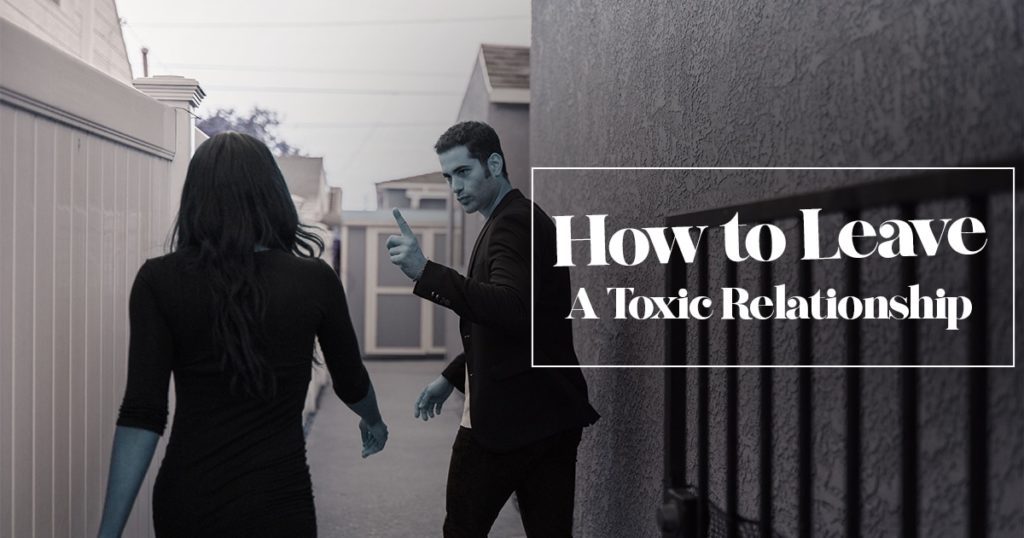Poets, philosophers, and scientists all agree that relationships are essential for one’s well-being. Good relationships provide emotional support, a sense of security, and belonging. Yet, everyone agrees that it’s better to be alone than in a bad relationship. The reason for this is simple – toxic relationships can impair one’s mental health and even lead to physical abuse, depression, and post-traumatic stress disorder.
The negative effects of toxic relationships are well-known, yet leaving a toxic relationship still continues to be one of the most difficult decisions a person can make. Why is that? Is there a way to help people leave toxic relationships?
In this article, we’ll dissect the nature of toxic relationships so you can easily make a difference between a good and a toxic relationship. Then, we’ll talk about why people stay in toxic relationships. Finally, we’ll share tips on how to avoid such situations and how to find the courage to leave.
How to Know if You’re in a Toxic Relationship?
No one really starts in a toxic relationship right from the start. This is because when we meet people, we don’t see their true colors. They choose what they’ll reveal in front of us, which is a very natural process, but it can also be manipulative if it’s intentional.
Mental Health Center of San Diego
The Honeymoon phase
In popular literature, the early stage in every relationship is called the honeymoon phase. During the honeymoon phase, both partners are still getting to know each other, and everything the partner does is seen as charming or endearing.
However, once the honeymoon phase fades, people start to see their partner more realistically. Usually, people are comfortable and reveal more about their true selves. It’s not uncommon to hear people say, “everything was perfect, but then they turned into a different person.”
During the honeymoon phase, it’s tough to notice red flags or signs of a toxic relationship, but it’s still possible. Here, you need to remember not to brush off something as a “one-time thing” or something that they won’t repeat. Also, slightly problematic behaviors, such as jealousy, will only get worse as the relationship progresses – they won’t get better.
What Are Some Signs of a Toxic Relationship?
It’s important to keep your eyes open to the subtle signs that you might be in a toxic relationship.
Some signs are evident, for instance, physical and verbal abuse, infidelity, and inappropriate sexual behavior. Other signs are more subtle. Some examples include emotional abuse, controlling behavior, disrespect, dishonesty, and more.
The term abuse is very general and includes physical and sexual violence, verbal and economic abuse, as well as emotional manipulation, and passive-aggressive behavior. Name-calling, humiliation, and threats are also abuses and should never be justified.
Sure, we all know these behaviors are bad, but it’s easy to contextualize and rationalize the behavior when you’re in a relationship with a person you love. We do not want to believe that the person we love is capable of hurting us.
Mental Health Center of San Diego
The Problem of Subjectivity
We have to mention that the term “toxic” is tough to define. What’s toxic for some people might not be seen as such by others – at least when we talk about some more subtle indicators of toxic relationships.
Because of this, it’s almost impossible to give a specific and all-inclusive definition of a toxic relationship. People need to learn how to identify red flags, set firm boundaries, and have strong support systems to rely on at all times.
Why do People Stay in Toxic Relationships?
There are many reasons why people stay in a toxic relationship even when they know they’re unhappy and their mental health suffers.
First, some people don’t leave a toxic relationship out of fear. They might fear their abuser or fear how others will react when they find out. This might also be related to feelings of shame.
Second, some people don’t leave because they have children or other people who are dependent on them. When leaving a relationship directly affects other people we love, people stay out of guilt.
Third, people don’t leave a toxic relationship because of limited finances. In other words, they don’t have the means to support themselves or their children – which is very common in abusive relationships.
Finally, some people don’t leave because of low self-esteem. Simply, they don’t believe they deserve better or that they can find someone better to love them.
How to Leave a Toxic Relationship?
Knowing why people stay in a toxic relationship is very informative. For instance, knowing that being financially dependent on your partner can make it impossible to leave, you can protect yourself by keeping finances separate or having a personal savings account.
Still, this doesn’t make leaving any less complicated. Here are some things that can really help:
- Do not isolate yourself. Keep your relationships with friends, family, and other people in your local community. Having a support network i.e., people to confide in, is one of the most important things when dealing with a toxic relationship.
- Become independent. Whether we’re talking about finances or psychological independence, knowing that you can be on your own is a big step forward.
- Go to therapy. Seeking professional help, not only to leave a toxic relationship but to improve your mental health and heal your broken heart. Furthermore, therapists can offer support in cases of abuse.
- Talk about your situation. The most difficult thing is to tell others that you’re in an abusive relationship. This can be out of fear of rejection, pity, or feeling shame. Nonetheless, confiding in the people close to you can be just what you need to leave the relationship.
Mental Health Center of San Diego
Mental Health Treatment in San Diego
Hopefully, our article will help you answer the question, “Am I in an abusive relationship?” If the answer is yes, follow our guide to break free. You deserve something better, and it would make us happy if we could help you find the courage to put yourself first.
With that being said, if you’re experiencing any type of abuse, please reach out to friends and family or a member of the Mental Health Center of San Diego team by calling (858) 258-9883.









